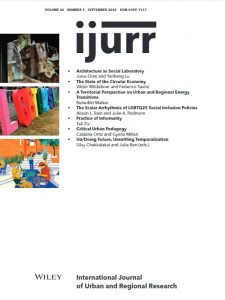This essay is based on long-term ethnographic research in Mexico City, and centers on a street epistemology that involves researchers immersing themselves in material street life to explore the relationships between the body, the house and the street in the constant repair of the (future) city. I assert that Mexico City is not a city dominated by planners, experts, or professional social workers, but rather a place where everyone knows that perfection is elusive and that constant repair of oneself, the city and the objects that constitute daily life make life possible here. The city is permanently under construction—populated by workers who destroy and rebuild, and by repairers of all kinds: roadside mechanics, nurses who check your blood pressure and offer flu vaccinations in the subway, herbalists who sell their medicines on the sidewalks, ‘bone setters’ who offer osteopathy services on the street, improvised pharmacies, used car part sellers, anti-flu juices producers, and cabinets for intercession with angels. In the ‘city of repair’ different yet interdependent futures are practiced. There is the future imagined and constructed by professionals seeking perfectibility and manifestations of aspirational politics. There is also the future imagined and practiced by the vast majority of urban dwellers—a pragmatic future grounded in the ‘here and now’ of constant repair and in the constant search for solutions to contingencies—an anticipatory political form.
Details
Written by:
Julie-Anne Boudreau
Digital Object Identifier (DOI)
https://doi.org/10.1111/1468-2427.13102
About DOI

